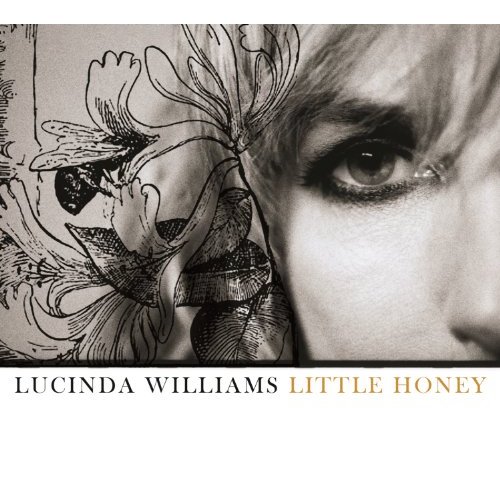
Lucinda Williams
Little Honey
Release Date: Oct 14, 2008
Genre(s): Alternative, Folk
Record label: Lost Highway
Music Critic Score
How the Music Critic Score works
Buy Little Honey from Amazon
Album Review: Little Honey by Lucinda Williams
Very Good, Based on 6 Critics
Based on rating 9.2/10
Lucinda gets her joy backLucinda Williams has a great laugh—it’s a joyful sound to hear on the aptly titled Little Honey, the 10th album in her three-decade career. A sweet sense of renewal imbues Williams’ latest work, which encompasses all the elements of her eclectic catalog—from her stark early sets Ramblin’ (1979) and Happy Woman Blues (1980) to her 1988 self-titled breakthrough to last year’s textural West, co-produced with Hal Willner (Lou Reed, Bill Frisell). But not since her masterpiece, 1998’s Car Wheels on a Gravel Road, has Williams dug so deep and come up with an album that brims with such varied, impeccable writing.
Based on rating B-
If last year’s melancholy West was Lucinda Williams’ Blood on the Tracks, does that make this her Nashville Skyline? She sounds happier than she has in years, singing mostly about domestic contentment with an audible grin. And though those positive vibes yield some correspondingly fun tunes, the disc feels a bit underwritten at times. We’d never wish her unhappiness, but it’s telling that the best song on Little Honey is a wistful breakup ballad (”Wishes Were Horses”).
Based on rating 6/10
Williams can still write the beautiful cut-time country tunes, such as the ballad "Circles and X's" and the honky tonk "Jailhouse Tears," a fun throwaway duet with Elvis Costello, and a backing chorus that includes Jim Lauderdale. The blues make their appearance on the beautiful "Tears of Joy" and the appropriately titled "Heaven Blues," a song that references her late mother and redemption, with excellent slide work by Pettibone. Greasy, punched up guitar rock is what fuels the sexually charged "Honey Bee," and a cover of AC/DC's "Long Way to the Top" (though her arrangement on the latter doesn't work).
Based on rating 3/5
It's great that Lucinda Williams has found a Real Love, as she sings on Little Honey's opening track, and that she's no longer heartbroken, but it's negatively affecting her ability to write lyrics. True, Little Honey contains some of her best material since the lauded Car Wheels album, but also some of her most banal. "I didn't know what love meant before, / I didn't know what you had waiting for me in store," she drawls on the slow-?drifting Knowing.
Based on rating 3/5
Though chirpier - and less essential - than last year's brilliant West, the bones of Williams's unique brand (domestic dysfunction, doomed love, booze) remain beneath an eclectic, upbeat musical skin. The happy-in-love rockers are doggedly inessential, but ballads such as 'The Knowing' and 'Plan to Marry' redress the balance beautifully. .
Opinion: Fantastic
Like Austin itself, a city she called home in the 1970s, Lucinda Williams has long bent country poetry to her own needs, creating a folksy sound part rock, part blues, and all heart. With Little Honey, she pays back fans whose faith had waned as her songwriting grew pedantic on recent albums such as West. "I've found the love I've been looking for, standing up behind an electric guitar," she crows on the opening track, "Real Love." Whether that's the player or the playing is never made clear, but it's crystal Williams has her joy back.
'Little Honey'
is available now

